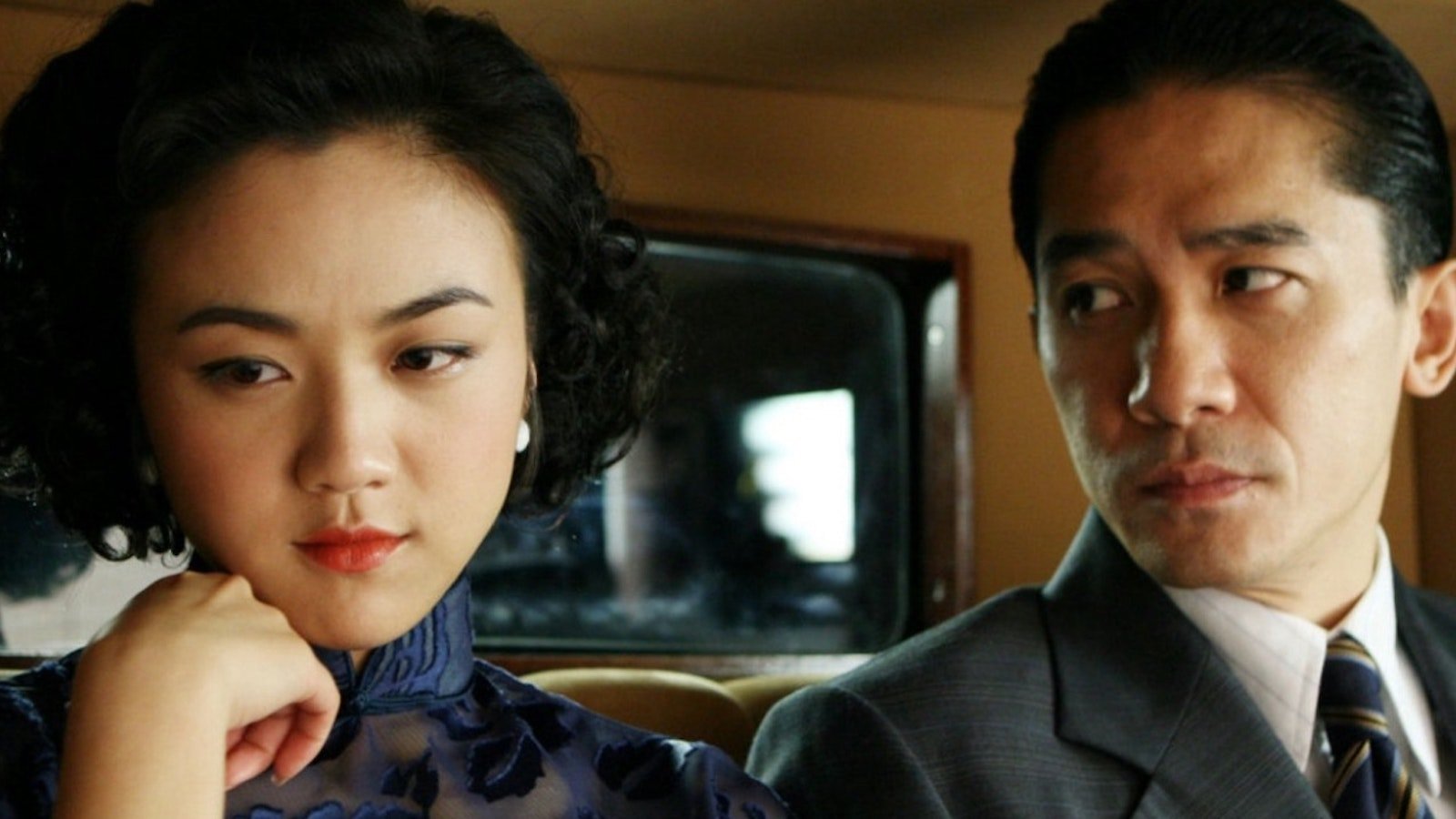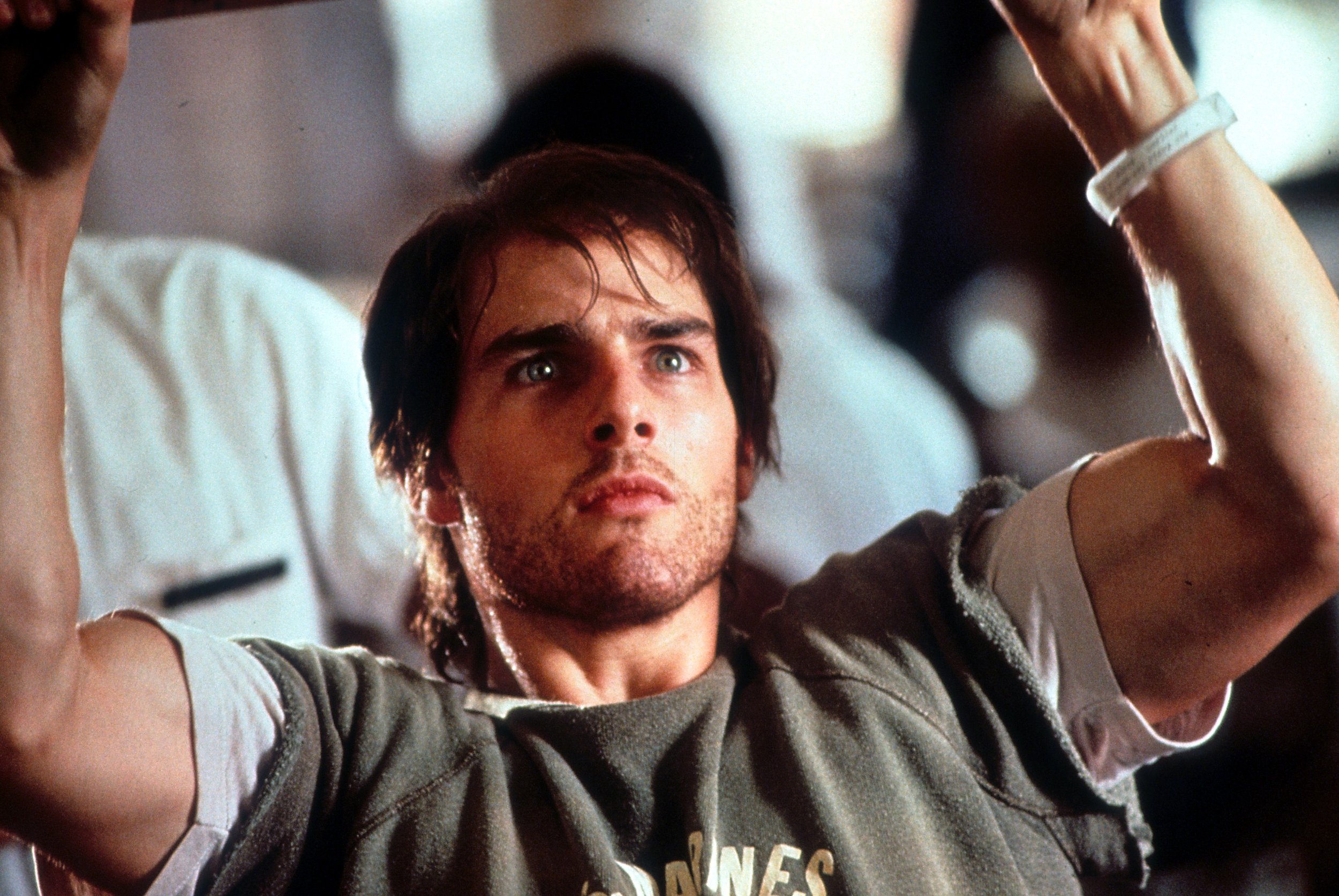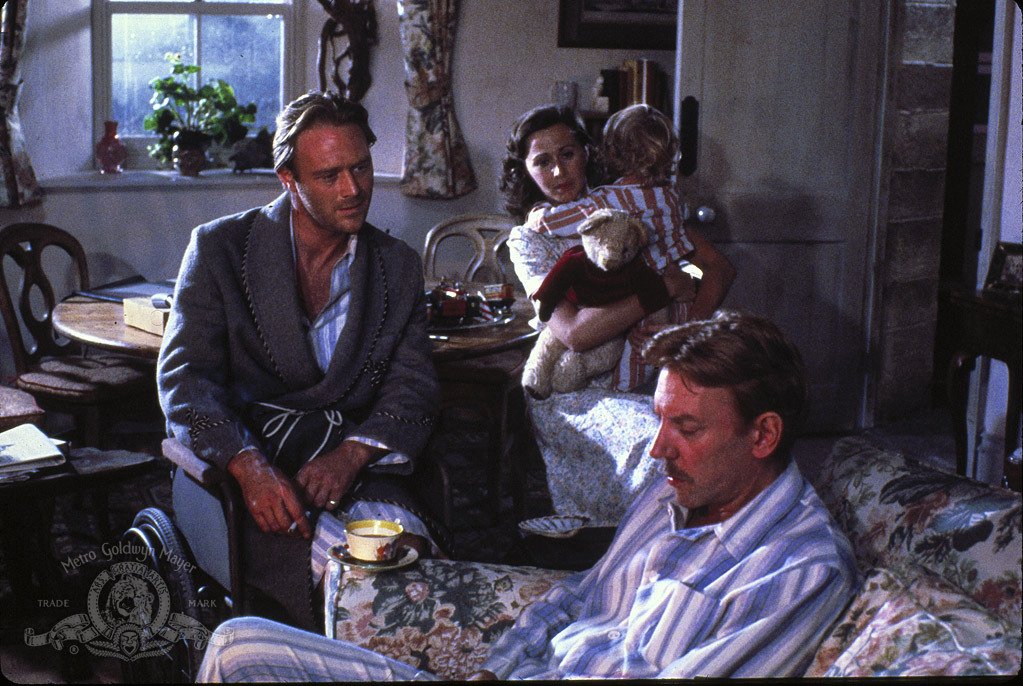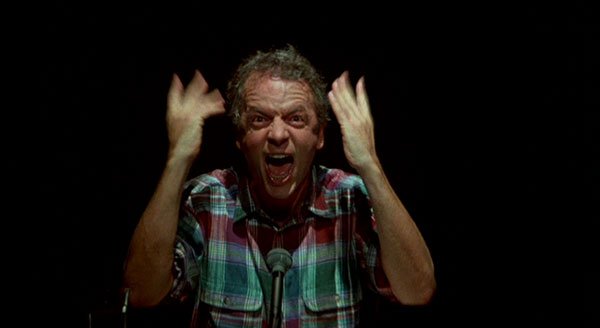
Blake Edwards’ 1959 Operation Petticoat
Marc Eliot’s Art of Film
“Blake Edwards directs with his customary wit, breeziness, and acute sense of pacing.”
- Chicago Reader
Sponsored by Kathy and Harry Puterbaugh, Drs. Darrel and Jane Gumm, Nancy Snowden, Film Society

Blake Edwards’ 1959 Operation Petticoat
Marc Eliot’s Art of Film
“Blake Edwards directs with his customary wit, breeziness, and acute sense of pacing.”
- Chicago Reader
Sponsored by Kathy and Harry Puterbaugh, Drs. Darrel and Jane Gumm, Nancy Snowden, Film Society

Ang Lee’s 2007 Lust Caution
Marc Eliot’s Art of Film
“For his sheer muscular verve and ambition, Lee deserves a standing ovation.”
- Guardian
Rated NC-17
Sponsored by Kathy and Harry Puterbaugh, Drs. Darrel and Jane Gumm, Nancy Snowden, Film Society

Ang Lee’s 2007 Lust Caution
Marc Eliot’s Art of Film
“For his sheer muscular verve and ambition, Lee deserves a standing ovation.”
- Guardian
Rated NC-17
Sponsored by Kathy and Harry Puterbaugh, Drs. Darrel and Jane Gumm, Nancy Snowden, Film Society

Oliver Stone’s 1989 Born on the Fourth of July
Marc Eliot’s Art of Film
“A score from John Williams and aggressive direction from Oliver Stone make this the pre-eminent Vietnam War movie.”
- Times (UK)
Sponsored by Kathy and Harry Puterbaugh, Drs. Darrel and Jane Gumm, Nancy Snowden, Film Society

Oliver Stone’s 1989 Born on the Fourth of July
Marc Eliot’s Art of Film
“A score from John Williams and aggressive direction from Oliver Stone make this the pre-eminent Vietnam War movie.”
- Times (UK)
Sponsored by Kathy and Harry Puterbaugh, Drs. Darrel and Jane Gumm, Nancy Snowden, Film Society

Richard Marquand’s 1981 Eye of the Needle
Marc Eliot’s Art of Film
“Alfred Hitchcock could have worked miracles with this story's mixture of love, suspicion and intrigue; as it is, the director is Richard Marquand, and he does much more than a creditable job. His film is suspenseful all the way.”
-New York Times
Sponsored by Kathy and Harry Puterbaugh, Drs. Darrel and Jane Gumm, Nancy Snowden, Film Society

Richard Marquand’s 1981 Eye of the Needle
Marc Eliot’s Art of Film
“Alfred Hitchcock could have worked miracles with this story's mixture of love, suspicion and intrigue; as it is, the director is Richard Marquand, and he does much more than a creditable job. His film is suspenseful all the way.”
-New York Times
Sponsored by Kathy and Harry Puterbaugh, Drs. Darrel and Jane Gumm, Nancy Snowden, Film Society

Robert Altman’s 1970 M*A*S*H
Marc Eliot’s Art of Film
“As a savage comedy about man's rebellion in the face of death it has rarely been bettered.”
- Empire Magazine
Sponsored by Kathy and Harry Puterbaugh, Drs. Darrel and Jane Gumm, Nancy Snowden, Film Society

Robert Altman’s 1970 M*A*S*H
Marc Eliot’s Art of Film
“As a savage comedy about man's rebellion in the face of death it has rarely been bettered.”
- Empire Magazine
Sponsored by Kathy and Harry Puterbaugh, Drs. Darrel and Jane Gumm, Nancy Snowden, Film Society

Jonathan Glazer’s 2023 The Zone of Interest
Marc Eliot’s Art of Film
“The scenario that Glazer creates and the performances of his lead players serve as a portal, challenging viewers to morph from spectators to participants, grappling with the enduring truth that we’re all capable of knowing evil when we see it.”
-Washington Post
Sponsored by Kathy and Harry Puterbaugh, Drs. Darrel and Jane Gumm, Nancy Snowden, Film Society

Jonathan Glazer’s 2023 The Zone of Interest
Marc Eliot’s Art of Film
“The scenario that Glazer creates and the performances of his lead players serve as a portal, challenging viewers to morph from spectators to participants, grappling with the enduring truth that we’re all capable of knowing evil when we see it.”
-Washington Post
Sponsored by Kathy and Harry Puterbaugh, Drs. Darrel and Jane Gumm, Nancy Snowden, Film Society

Documentary Double Feature
Marc Eliot’s Art of Film
Tom Thurman’s 2002 John Ford Goes to War
“John Ford’s place in the Pantheon is safe and secure. Thurman’s documentary on Ford’s wartime exploits and propaganda film open up a side of the great filmmaker usually overlooked by his classic features. Both film and filmmaker are essential to the art of film.”
- Marc Eliot
George Stevens’ 1994 From D-Day to Berlin
“Stevens’ personal films document his involvement in the liberation of France and the Allied March into Berlin. An incredible bit of filmmaking from a director who mostly made commercial features 1954’s Shane.”
- Marc Eliot
Sponsored by Kathy and Harry Puterbaugh, Drs. Darrel and Jane Gumm, Nancy Snowden, Film Society

Documentary Double Feature
Marc Eliot’s Art of Film
Tom Thurman’s 2002 John Ford Goes to War
“John Ford’s place in the Pantheon is safe and secure. Thurman’s documentary on Ford’s wartime exploits and propaganda film open up a side of the great filmmaker usually overlooked by his classic features. Both film and filmmaker are essential to the art of film.”
- Marc Eliot
George Stevens’ 1994 From D-Day to Berlin
“Stevens’ personal films document his involvement in the liberation of France and the Allied March into Berlin. An incredible bit of filmmaking from a director who mostly made commercial features 1954’s Shane.”
- Marc Eliot
Sponsored by Kathy and Harry Puterbaugh, Drs. Darrel and Jane Gumm, Nancy Snowden, Film Society

Stanley Kubrick’s 1964 Dr. Strangelove
Marc Eliot’s Art of Film
“Age has not withered that final queasy nightmare of the mushroom clouds, set to Vera Lynn's hopeful We'll Meet Again - underscoring how the certainties of the second world war ceased to hold their meaning in the nuclear age.”
-Guardian
Sponsored by Kathy and Harry Puterbaugh, Drs. Darrel and Jane Gumm, Nancy Snowden, Film Society

Stanley Kubrick’s 1964 Dr. Strangelove
Marc Eliot’s Art of Film
“Age has not withered that final queasy nightmare of the mushroom clouds, set to Vera Lynn's hopeful We'll Meet Again - underscoring how the certainties of the second world war ceased to hold their meaning in the nuclear age.”
-Guardian
Sponsored by Kathy and Harry Puterbaugh, Drs. Darrel and Jane Gumm, Nancy Snowden, Film Society

Francis Coppola’s 1979 Apocalypse Now
Marc Eliot’s Art of Film
“Some ultimate and flawless perfection may have been missed. But as a noble use of the medium and as a timeless expression of a national anguish, it towers over anything that has been attempted by an American film maker in a very long time.”
- Los Angeles Times
Sponsored by Kathy and Harry Puterbaugh, Drs. Darrel and Jane Gumm, Nancy Snowden, Film Society

Francis Coppola’s 1979 Apocalypse Now
Marc Eliot’s Art of Film
“Some ultimate and flawless perfection may have been missed. But as a noble use of the medium and as a timeless expression of a national anguish, it towers over anything that has been attempted by an American film maker in a very long time.”
- Los Angeles Times
Sponsored by Kathy and Harry Puterbaugh, Drs. Darrel and Jane Gumm, Nancy Snowden, Film Society

Arthur Hiller’s 1964 The Americanization of Emily
Marc Eliot’s Art of Film
“Has something important to say about war and the way it is glorified by some in our culture, courtesy of Paddy Chayefsky... dialogue is bristling with caustic observations of war, rare for a film of that era.”
- Arkansas Democrat-Gazette
Sponsored by Kathy and Harry Puterbaugh, Drs. Darrel and Jane Gumm, Nancy Snowden, Film Society

Arthur Hiller’s 1964 The Americanization of Emily
Marc Eliot’s Art of Film
“Has something important to say about war and the way it is glorified by some in our culture, courtesy of Paddy Chayefsky... dialogue is bristling with caustic observations of war, rare for a film of that era.”
- Arkansas Democrat-Gazette
Sponsored by Kathy and Harry Puterbaugh, Drs. Darrel and Jane Gumm, Nancy Snowden, Film Society

Park Chan-wook’s 2016 The Handmaiden
Marc Eliot’s Art of Film
“The Handmaiden is just pure cinema, a dizzying, disturbing fable of love and betrayal that piles on luxurious imagery, while never losing track of its story’s human core.”
- The Atlantic
South Korean with English subtitles.
Sponsored by Kathy and Harry Puterbaugh, Drs. Darrel and Jane Gumm, Nancy Snowden, Film Society

Jonathan Demme’s 1987 Swimming to Cambodia
Marc Eliot’s Art of Film
“The rendering of nightmare as black comedy is a peculiarly American art form, and Gray at times achieves the mastery of artists like Mark Twain, William Burroughs, and Hunter Thompson.”
- Chicago Reader
Sponsored by Kathy and Harry Puterbaugh, Drs. Darrel and Jane Gumm, Nancy Snowden, Film Society

Roland Joffé 1984 The Killing Fields
Marc Eliot’s Art of Film
“This is one of the quietest ‘war’ movies ever made; yet, it’s an indelible portrait of the excitement, horror, and confusion with which journalists experience war.”
- Vogue
Sponsored by Kathy and Harry Puterbaugh, Drs. Darrel and Jane Gumm, Nancy Snowden, Film Society

Taylor Hackford’s 1982 An Officer and a Gentleman
Marc Eliot’s Art of Film
“Rarely does a film come along with so many finely drawn characters to care about.”
- Variety
Sponsored by Kathy and Harry Puterbaugh, Drs. Darrel and Jane Gumm, Nancy Snowden, Film Society
TICKETS:

John Ford’s 1945 They Were Expendable
Marc Eliot’s Art of Film
“Quite clearly, the making of this picture was a labor of understanding and love on the part of the men who produced it, from John Ford, the director, on down. Most of those who worked on it were active or recent Navy personnel. “
-The New York Times
Sponsored by Kathy and Harry Puterbaugh, Drs. Darrel and Jane Gumm, Nancy Snowden, Film Society

George Roy Hill’s 1969 "Butch Cassidy and the Sundance Kid" Encore Presentation
Marc Eliot’s Art of Film
“An all-time classic…A whimsical Western that superbly blends action, humor and the power of myth making.”
-Journal and Courier
Part of a new cycle of Marc Eliot’s Art of Film, based on the American New Wave, Butch Cassidy and the Sundance kid is an exceptional entry into the Western genre, so integral to the American film canon. Guest curator of film Marc Eliot has recorded pre- and post- talks for a deeper dive into the film.
Sponsored by Kathy and Harry Puterbaugh, Drs. Darrel and Jane Gumm, Nancy Snowden, Film Society

George Roy Hill’s 1969 "Butch Cassidy and the Sundance Kid" Encore Presentation
Marc Eliot’s Art of Film
“An all-time classic…A whimsical Western that superbly blends action, humor and the power of myth making.”
-Journal and Courier
Part of a new cycle of Marc Eliot’s Art of Film, based on the American New Wave, Butch Cassidy and the Sundance kid is an exceptional entry into the Western genre, so integral to the American film canon. Guest curator of film Marc Eliot has recorded pre- and post- talks for a deeper dive into the film.
Sponsored by Kathy and Harry Puterbaugh, Drs. Darrel and Jane Gumm, Nancy Snowden, Film Society

Roman Polanski’s 1974’s "Chinatown"
Marc Eliot’s Art of Film
“In its total recapturing of a past, in its plot, its vivid characterizations, its carefully calculated and accelerating pace, its whole demonstration of a medium mastered, Chinatown reminds you again that motion pictures are larger, not smaller than life.”
-Los Angeles Times
Part of a new cycle of Marc Eliot’s Art of Film, based on the American New Wave, Chinatown is a potent story based on the real history of California’s “water wars.” Guest curator of film Marc Eliot has recorded pre- and post- talks for a deeper dive into the film.
Sponsored by Kathy and Harry Puterbaugh, Drs. Darrel and Jane Gumm, Nancy Snowden, Film Society

Roman Polanski’s 1974’s "Chinatown"
Marc Eliot’s Art of Film
“In its total recapturing of a past, in its plot, its vivid characterizations, its carefully calculated and accelerating pace, its whole demonstration of a medium mastered, Chinatown reminds you again that motion pictures are larger, not smaller than life.”
-Los Angeles Times
Part of a new cycle of Marc Eliot’s Art of Film, based on the American New Wave, Chinatown is a potent story based on the real history of California’s “water wars.” Guest curator of film Marc Eliot has recorded pre- and post- talks for a deeper dive into the film.
Sponsored by Kathy and Harry Puterbaugh, Drs. Darrel and Jane Gumm, Nancy Snowden, Film Society

Michael Mann’s 1992 "The Last of the Mohicans"
Marc Eliot’s Art of Film
“Daniel Day-Lewis proves once again that he is one of those chameleons who can play absolutely anything with complete conviction.”
-Los Angeles Times
Part of a new cycle of Marc Eliot’s Art of Film, based on the American New Wave, The Last of the Mohicans is a breathless romantic adventure, with breakneck action. Guest curator of film Marc Eliot has recorded pre- and post- talks for a deeper dive into the film.
Sponsored by Kathy and Harry Puterbaugh, Drs. Darrel and Jane Gumm, Nancy Snowden, Film Society

Michael Mann’s 1992 "The Last of the Mohicans"
Marc Eliot’s Art of Film
“Daniel Day-Lewis proves once again that he is one of those chameleons who can play absolutely anything with complete conviction.”
-Los Angeles Times
Part of a new cycle of Marc Eliot’s Art of Film, based on the American New Wave, The Last of the Mohicans is a breathless romantic adventure, with breakneck action. Guest curator of film Marc Eliot has recorded pre- and post- talks for a deeper dive into the film.
Sponsored by Kathy and Harry Puterbaugh, Drs. Darrel and Jane Gumm, Nancy Snowden, Film Society

Alan Parker’s 1978 "Midnight Express"
Marc Eliot’s Art of Film
“Midnight Express is a sordid and ostensibly true story about a young American busted for smuggling hash in Turkey and his subsequent harsh imprisonment and later escape.”
-Variety
Part of a new cycle of Marc Eliot’s Art of Film, based on the American New Wave, Midnight Express is a terrifying rumination on imprisonment. Guest curator of film Marc Eliot has recorded pre- and post- talks for a deeper dive into the film.
Sponsored by Kathy and Harry Puterbaugh, Drs. Darrel and Jane Gumm, Nancy Snowden, Film Society
